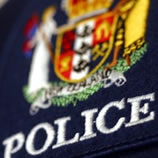Source: New Zealand Police (District News)
Eastern District Police are warning the public to be vigilant, following a spate of scams being reported.
We would like to remind people to exercise caution when buying goods online, particularly items listed for sale on social media, Sergeant Nigel Hurley says.
“Offenders have been known to create fake profiles in order to sell items and then block buyers shortly after.
“These incidents of fraud are being reported to Police daily.”
Police have a number of suggestions for people looking to buy goods online:
- Check the social media profile of the seller. Is it a new profile or relatively blank? There’s a chance it may be a fake profile.
- If the seller insists on meeting at a public place to make a sale, be cautious. It may be that they are selling stolen items and don’t want to be identified.
- We recommend using a reputable online site to sell items.
- Where possible pay for your goods with cash, as opposed to an online bank transfer. This is particularly important for large value items like caravans, cars etc.
- If someone gives you substantially more money than what the trade was for and asks for you to pay the extra back to them in cash, talk to your bank before you do. This money is likely obtained from a person who has been scammed.
- As the saying goes: if it’s too good to be true, it probably is.
We also urge the public to be wary of calls from scammers, Sergeant Hurley says.
“We are hearing about a lot of people with landlines being contacted over the phone and asked to pay money into a New Zealand bank account.”
Never give your personal banking information out over the phone and do not allow the caller to access your computer remotely – regardless of what company the caller claims to be from.
“If someone is ringing you on your landline, asking you to pay money, there is a high chance it is a scam – your bank won’t ask for your details over the phone, they already have those.”
Police, along with our partner agencies, continue to encourage you to take the time to stop and think for a minute when you’re confronted with a possible scam situation – especially when you are contacted unexpectedly and asked for your personal information.
If you think you may have been a victim of a scam, notify your bank immediately.
Police would also like to warn people from accepting money from someone you don’t know.
“Scammers need bank accounts to commit fraud and do not use their own legitimate accounts. If you are approached by someone requesting to use your account to transfer funds, or to bank funds into, you are likely being recruited as a money mule. Do not engage with them or give them your account details. If you accept, you could become the subject of a Police investigation. It is unlawful to allow someone you don’t know to put money into your account and Police are now actively charging people for money laundering. Banks regularly freeze accounts used for unlawful fund transfers.
“You need to ask yourself is this for real? Why would you want to give me money? There must be a catch? And there usually is.”
HOW TO AVOID A SCAM:
- A genuine bank or organisation will never contact you to ask for your PIN, password or to move money to another account.
- Never click on a link in an unexpected email or text – you could be giving access to your personal and financial details.
- Always question uninvited approaches in case it is a scam. Instead, contact the company directly using a known email or phone number.
- Don’t assume an email or phone call is authentic – just because someone knows your basic details (name and address, or mother’s maiden name) it doesn’t mean they are genuine.
- Don’t be rushed into making a decision or financial transaction on the spot – a genuine bank or trusted organisation would never do this.
- Listen to your instincts – if something feels wrong then it generally is.
We want to reassure our community we are committed to holding offenders to account and urge anyone who sees anything suspicious to report it to Police.
If you believe you are the victim of a scam you can contact Police and report the matter via 105.
Visit scamwatch.govt.nz for more information on how you can prevent yourself, family and friends from being scammed.
ENDS
Issued by Police Media Centre



